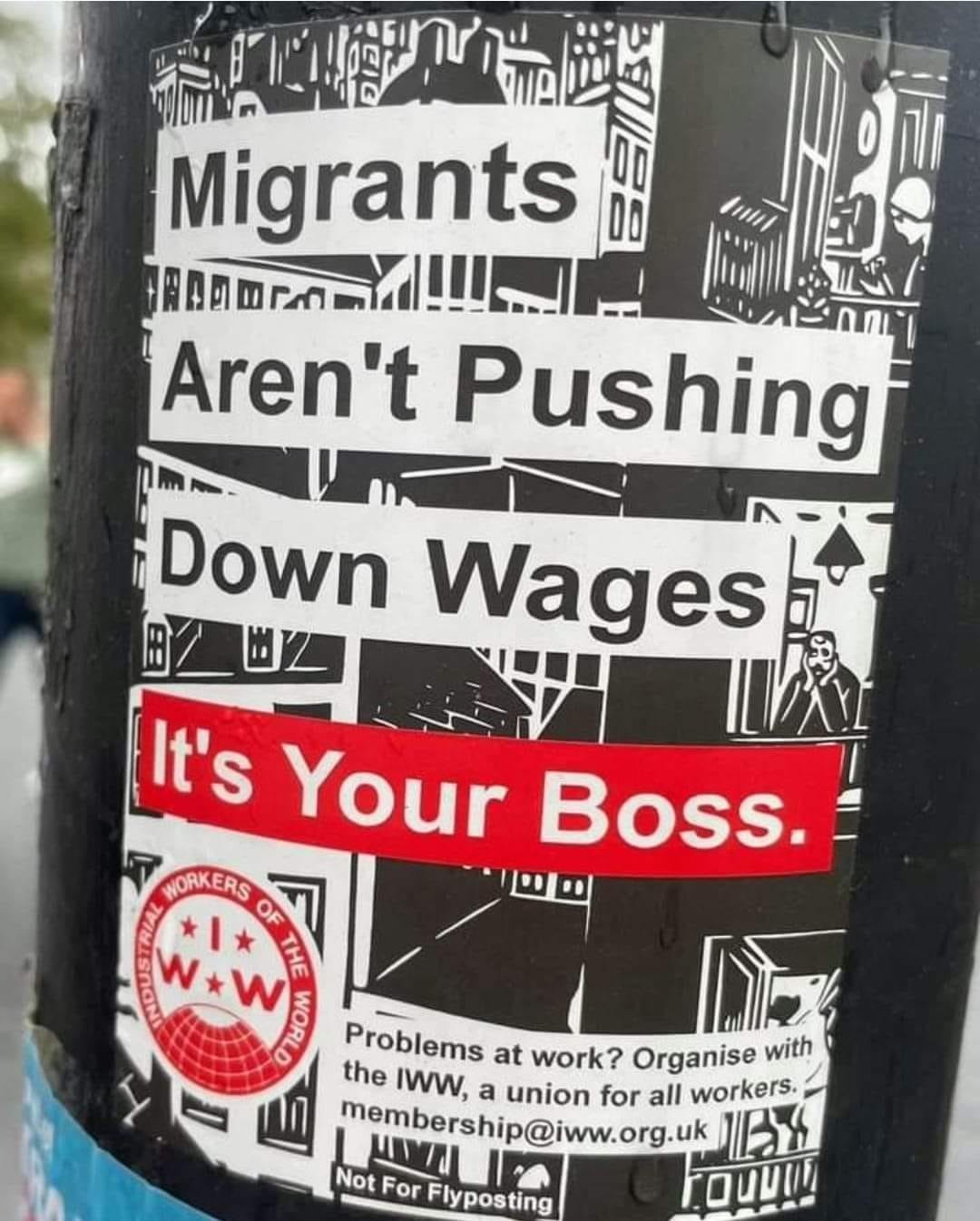this post was submitted on 14 May 2024
907 points (98.0% liked)
unions
2029 readers
4 users here now
founded 2 years ago
MODERATORS
you are viewing a single comment's thread
view the rest of the comments
view the rest of the comments

So then why are some people complaining that “nobody is willing to work”?
Simply, it is an example of jumping to conclusions, or, perhaps more specifically, a faulty generalization.
Cool links and all, but you still didn’t answer the question…..
Let me be more specific while using your own terms….
“What conclusion are people jumping to, and based on what information are they using to jump to this conclusion?”
The conclusion that some are jumping to is the statement that "nobody is willing to work". If just a single person is currently willing to work, then that statement is false. I assure you that there is a non-zero amount of people who are currently willing to work.
By definition, there is an inadequate amount of information supporting an argument that is founded on the Jumping Conclusion Bias — when one jumps to conclusions, they are basically inferring a conclusion without any supportive premises:
So you believe that this statement is literal and they believe that “not a single person wants to work” rather than figurative?
And then you spend a paragraph explaining jumping to conclusions while avoiding the obvious question?
We both know that the statement is figurative and not literal, you’re arguing in bad faith.
Have a nice day.
It depends on the person. At face value, regardless of the person, the statement is false. Beyond that, it is sensationalist and disingenuous — essentially clickbait. It really only serves to detract from constructive conversation.
The question being "Why do some people not want to work?"?
I'm not arguing in bad faith. I'm arguing about the statement itself. In the original comment, however, I was arguing that the wages will only increase if the employer isn't able to find someone who meets their requirements at their currently offered salary. It's a market. If an employer wants to hire an employee, their wage must match what that employee is willing to work for. If they are able to fill the position, then there exists employees who are willing to work at that wage.
The statement itself is always used by businesses when they’re struggling to find workers willing to work for the pay offered.
It’s not overly complicated.
You finally acknowledge that the statement isn’t literal, but you’re still entirely ignoring context for when it’s said. I can’t tell if you’re being overly pedantic or still arguing in bad faith.
Either way, this is a waste of my time and I’m done.
Have a nice day
Hence "sensationalist and disingenuous".
The former.
Unfortunate.